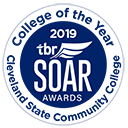Median wages
$51,180
Investigate alleged or suspected criminal violations of Federal, state, or local laws to determine if evidence is sufficient to recommend prosecution.
- Prepare reports that detail investigation findings.

- Obtain and verify evidence by interviewing and observing suspects and witnesses or by analyzing records.

- Identify case issues and evidence needed, based on analysis of charges, complaints, or allegations of law violations.

- Investigate organized crime, public corruption, financial crime, copyright infringement, civil rights violations, bank robbery, extortion, kidnapping, and other violations of federal or state statutes.

- Record evidence and documents, using equipment such as cameras and photocopy machines.

- Obtain and use search and arrest warrants.

- Testify before grand juries concerning criminal activity investigations.

- Search for and collect evidence, such as fingerprints, using investigative equipment.

- Determine scope, timing, and direction of investigations.

- Collect and record physical information about arrested suspects, including fingerprints, height and weight measurements, and photographs.

- Analyze evidence in laboratories or in the field.

- Collaborate with other offices and agencies to exchange information and coordinate activities.

- Develop relationships with informants to obtain information related to cases.

- Perform undercover assignments and maintain surveillance, including monitoring authorized wiretaps.

- Collaborate with other authorities on activities, such as surveillance, transcription, and research.

- Examine records to locate links in chains of evidence or information.

- Serve subpoenas or other official papers.

- Compare crime scene fingerprints with those from suspects or fingerprint files to identify perpetrators, using computers.

- Manage security programs designed to protect personnel, facilities, and information.

- Provide protection for individuals, such as government leaders, political candidates, and visiting foreign dignitaries.

- Administer counterterrorism and counternarcotics reward programs.

- Issue security clearances.
- Data base user interface and query software — Integrated Automated Fingerprint Identification System IAFIS; Law enforcement information databases; National Crime Information Center NCIC database; National Integrated Ballistics Information Network NIBIN

- Electronic mail software — Email software; Microsoft Outlook


- Graphics or photo imaging software — Computer aided composite drawing software; Graphics software

- Internet browser software — Web browser software

- Map creation software — Crime mapping software; ESRI ArcView

- Office suite software — Corel WordPerfect; Microsoft Office

- Project management software — Case management software

- Spreadsheet software — Microsoft Excel


- Word processing software — Microsoft Word

![]() Hot Technology — a technology requirement frequently included in employer job postings.
Hot Technology — a technology requirement frequently included in employer job postings.
- Critical Thinking — Using logic and reasoning to identify the strengths and weaknesses of alternative solutions, conclusions or approaches to problems.

- Active Listening — Giving full attention to what other people are saying, taking time to understand the points being made, asking questions as appropriate, and not interrupting at inappropriate times.

- Complex Problem Solving — Identifying complex problems and reviewing related information to develop and evaluate options and implement solutions.

- Social Perceptiveness — Being aware of others' reactions and understanding why they react as they do.

- Speaking — Talking to others to convey information effectively.

- Reading Comprehension — Understanding written sentences and paragraphs in work related documents.

- Writing — Communicating effectively in writing as appropriate for the needs of the audience.

- Judgment and Decision Making — Considering the relative costs and benefits of potential actions to choose the most appropriate one.

- Active Learning — Understanding the implications of new information for both current and future problem-solving and decision-making.

- Coordination — Adjusting actions in relation to others' actions.

- Persuasion — Persuading others to change their minds or behavior.

- Time Management — Managing one's own time and the time of others.

- Monitoring — Monitoring/Assessing performance of yourself, other individuals, or organizations to make improvements or take corrective action.

- Negotiation — Bringing others together and trying to reconcile differences.

- Management of Personnel Resources — Motivating, developing, and directing people as they work, identifying the best people for the job.

- Service Orientation — Actively looking for ways to help people.










